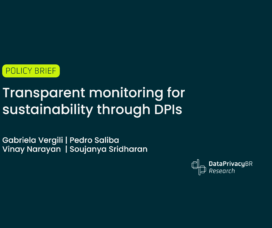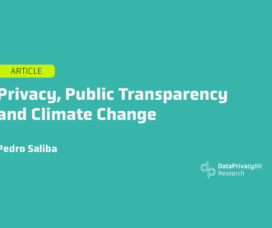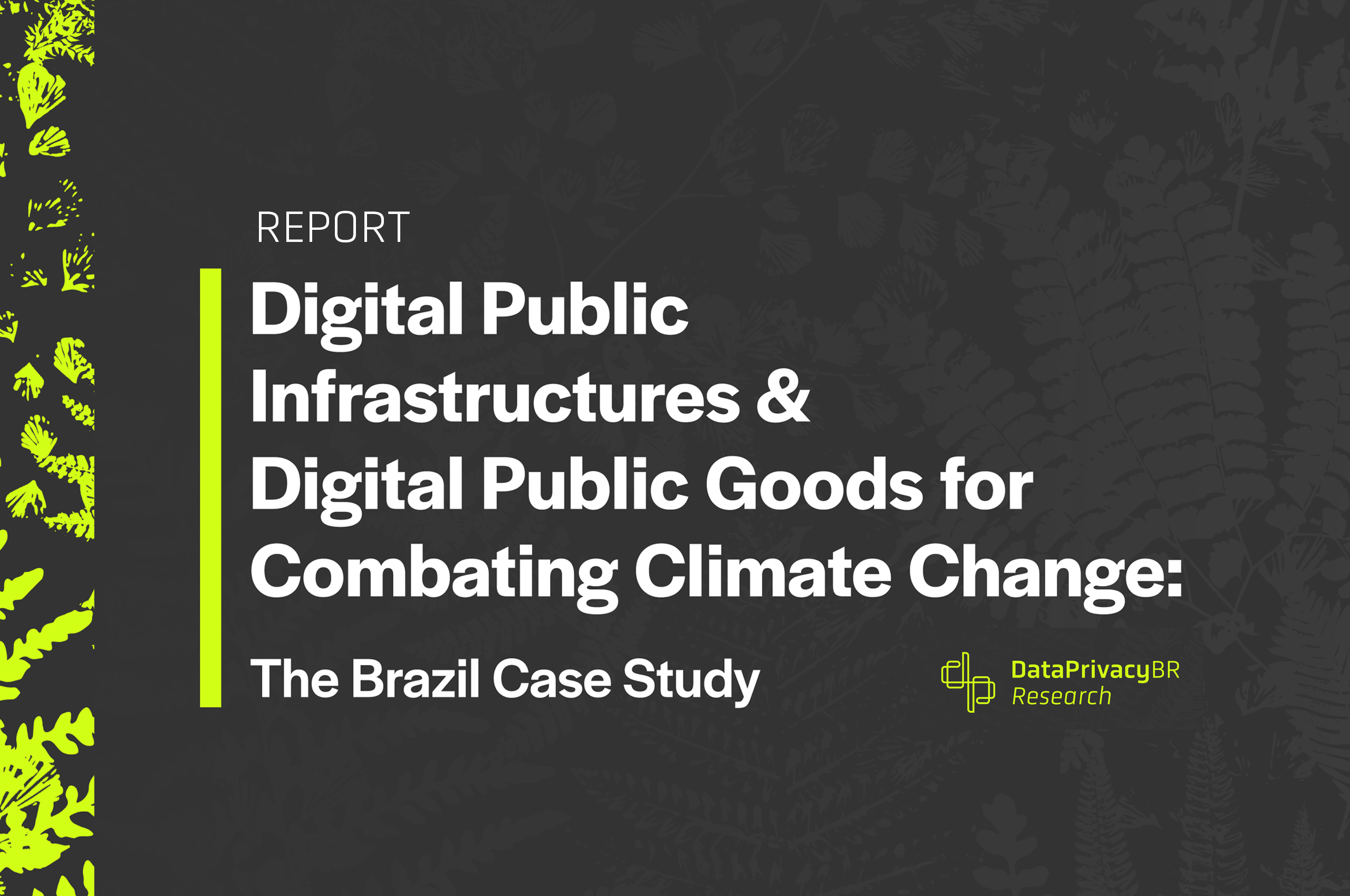Digital Public Infrastructures & Digital Public Goods for Combating Climate Change: The Brazil Case Study
Data Privacy Brasil, with the support of the Digital Public Goods Alliance (DPGA), launches a new report that aims to analyze the integration between Digital Public Infrastructure (DPI) and Digital Public Goods (DPGs) as tools to combat climate change.
Data Privacy Brasil published a new report on digital technologies and climate change. Funded by Digital Public Goods Alliance, the research explores how digital public infrastructures (DPI) and digital public goods (DPG) help to improve environmental policies.
During India’s presidency of the G20 in 2023, digital public infrastructure (DPI) became a key topic in the action plan presented to accelerate progress on the Sustainable Development Goals (SDGs). Upon taking on the presidency in 2024, Brazil continued the DPI debate, especially based on national experiences with digital identity (gov.br) and immediate financial transactions (PIX).
As many countries explore how to implement DPI in their national strategies, questions on transparency, public participation and costs are posed. As open-source solutions, digital public goods play a central role in this context. They’re well documented and build with openness as a core principle, which enables customization to the needs of each government.
Two Brazilian initiatives are used as examples: the Cadastro Ambiental Rural (CAR), which can be classified as a DPI, and the Projeto de Mapeamento Anual da Cobertura do Solo no Brasil (MapBiomas), which has characteristics of a DPG, such as the use of open licenses. The report provides examples of other digital public goods and their potential uses for enabling countries to build safe, inclusive and interoperable DPI, and more specifically for combating climate change.
In 2024, many events demonstrated that the agenda on DPI and DPG has a growing interest. “Common Horizons”, organized by Data Privacy Brasil in Brasília, discussed DPIs with experts from finance, digital identity and environmental fields. The “50-in-5” initiative includes 22 countries, and the “Global Summit on Digital Public Infrastructure” was held for the first time in October 2024 in Cairo, Egypt
The focus on climate change shows how digital technologies can improve public policies around the world. As Brazil shapes and transforms its DPI approach, specially with CAR, it can serve as an example for other States and interested parties in building an agenda focused on combating climate change using open digital technologies, with robust data governance that promotes transparency and public participation.
The report is now available for reading, click on the link and check it out!
Veja também
-

Why public transparency on certain personal data is essential to guarantee environmental justice?
Between 2022 and 2023, Data Privacy Brasil developed the project Environment and Information: contesting the political instrumentalization of LGPD in Environmental Regulation which focuses on the intersection of digital rights and environmental policies.
-

Transparent monitoring for sustainability through DPIs
In this new publication, researchers Gabriela Vergili, Pedro Saliba from Data Privacy Brasil, Vinay Narayan and Soujanya Sridharan from Aapti Institute, discuss the “Transparent monitoring for sustainability through DPIs”.
-

Privacy, Public Transparency and Climate Change
How transparency and data protection can help environmental public policies in Brazil.
Veja Também
-

Why public transparency on certain personal data is essential to guarantee environmental justice?
Between 2022 and 2023, Data Privacy Brasil developed the project Environment and Information: contesting the political instrumentalization of LGPD in Environmental Regulation which focuses on the intersection of digital rights and environmental policies.
-

Privacy, Public Transparency and Climate Change
How transparency and data protection can help environmental public policies in Brazil.
DataPrivacyBr Research | Content under licensing CC BY-SA 4.0

